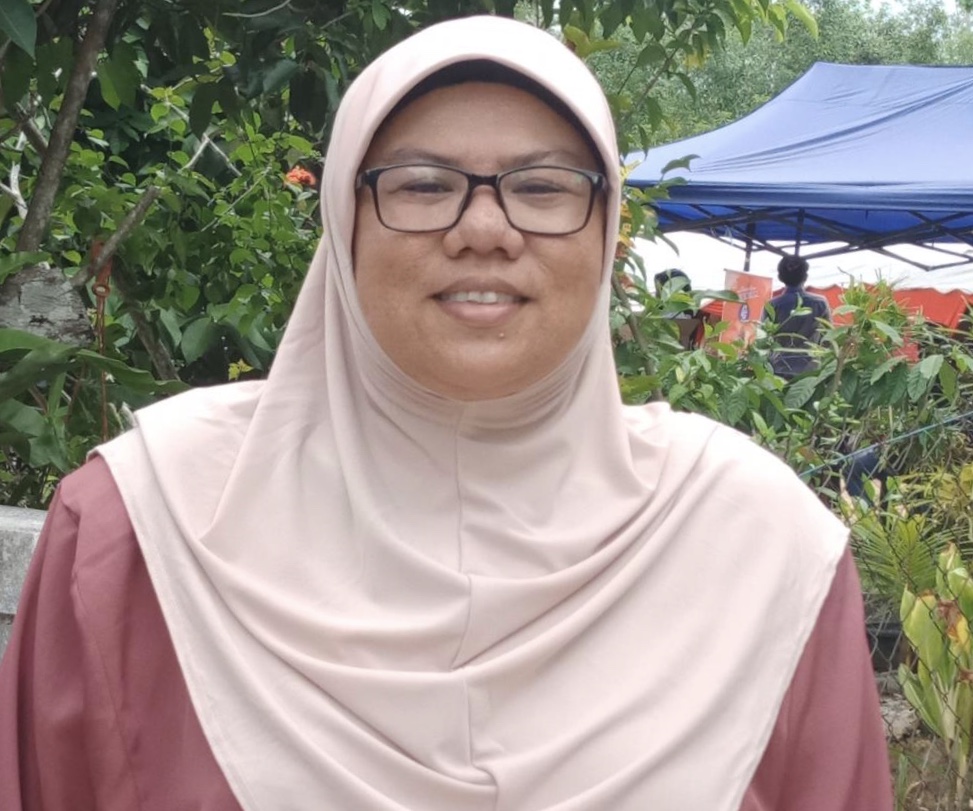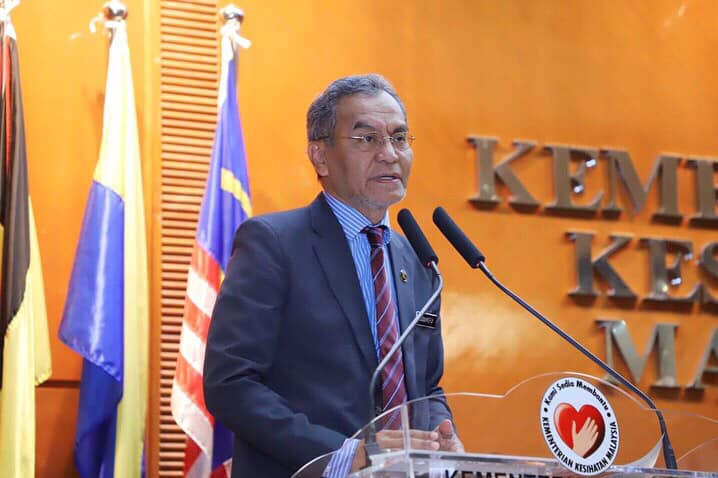KUALA LUMPUR, May 9 — Most Malaysians have rated Health Minister Dzulkefly Ahmad’s performance during Pakatan Harapan’s (PH) first year in office a “C” (average) or worse in a survey.
An online survey by CodeBlue with 164 respondents showed that 70 per cent graded the Amanah leader a “C” (average), “D” (below average), or “F” (failing), with just about 24 per cent perceiving his performance to be “A” (excellent) or “B” (above average). About 6 per cent of respondents said they did not know who Dzulkefly was.
The majority at slightly more than a third, or about 35 per cent, gave Dzulkefly a “C”, echoing the same sentiment with other health stakeholders as reported on CodeBlue ahead of PH’s first anniversary in office today, exactly a year after the fledgling coalition won power in the historic 2018 election.
“I don’t feel any changes brought by them. I don’t see any difference compared to Barisan Nasional,” Gunushakran Muniyandy, a 65-year-old veteran of the Malaysian Armed Forces, told CodeBlue as he gave a “C” for PH’s performance in the health sector.
Almost half of survey respondents said they were not confident in Malaysia’s public health care system compared to a year ago. A third found public hospitals more expensive now than a year ago, while a whopping 67 per cent perceived private hospitals to cost more now than a year ago. Almost a quarter said waiting times at public hospitals were now longer compared to a year ago.
Besides running the survey, CodeBlue also interviewed five Malaysians — including a hypertension patient and caregivers from Kuala Lumpur, Petaling Jaya (Selangor), Ipoh (Perak), Kemaman (Terengganu) and Melaka — most of whom graded Dzulkefly a “C”.
Some complained about medicine running out of stock and unavailability of certain blood tests at public hospitals, while others urged the Ministry of Health (MOH) to expand public clinics, regulate medicine prices, and separate the prescribing and dispensing of medicine.
Among Dzulkefly’s and PH’s achievements that received public praise was the nationwide smoking ban at public eateries.
“So far, nothing too prominent that echoes throughout the country other than controversial smoking ban. I am all for this but at the back of my mind, I’m still afraid that such initiatives will be carried halfheartedly by the government.

“I would like to see it being enforced with a clear objective and tenacity despite the infamous public rejection and mockery,” Engku Amin Aziz, a 29-year-old wealth fund manager from Terengganu who is caring for his mother with chronic kidney disease, told CodeBlue.
When survey participants were asked about their confidence in the public health care system, compared to a year ago, the majority, or about 38 per cent, picked “somewhat confident” as their answer. PH should give more attention to almost half of respondents, or about 45 per cent, with the sentiments of “not so confident” and “not so confident at all”.
In addition, respondents were also asked about the quality of health care in Malaysia over the past year — majority answered that the quality “remained the same”, while nearly 30 per cent of respondents picked “lower quality” as their answer.
Almost 34 per cent and about 67 per cent of respondents found hospitalisation, procedures, or treatment at public and private hospitals respectively to be more expensive now than a year ago.
As for the question “Compared to a year ago, are waiting times at public hospitals longer, shorter or unchanged?” — the majority said the waiting time was “about the same”, while about 24 per cent said they spent “longer” waiting for treatment.
May-huen Cheah, 32, said health care delivery in public hospitals was not very efficient, hence forcing the rakyat to get better alternatives at private hospitals.
“To those who can afford, they are lucky to have options in private hospitals. What about those who are underprivileged? So, we have to make sure the efficiency in public hospitals so rakyat gets better and equal treatment,” Cheah, a PR account manager from Petaling Jaya who is caring for her elderly parents, told CodeBlue.
Cheah’s statement was similar with sentiments expressed by 39-year-old Sharifah Sharina Aswad, a social worker from Kuala Lumpur.

“The major flaw in our health care system is human resource management. Public hospitals are still short of doctors and nurses, thus forcing them to work harder than they should,” said Sharifah.
About 70 per cent of survey respondents said medicine in private health facilities was more expensive than a year ago, while about 29 per cent found drug price hikes at public facilities in the same period.
Asyraf Amir, 32, said the price of medicines at private clinics sometimes could be absurd.
“Some of the clinics charged quite a hefty price for normal medicines such as painkiller, and can go up to three times higher than the normal price. I will just take the prescription from GP and buy the medicines at the pharmacy instead. Cheaper!” the 32-year-old cafe manager from Melaka, who is caring for his elderly parents, told CodeBlue.
Engku Amin claimed that he has heard about doctors and pharmacists at public hospitals deciding who deserved treatment based on patients’ compliance to medicine.
“I have also heard that pharmacists and doctors are to conduct a so-called audit to decide which patients are ‘good’ patients and which ones are ‘bad’ in terms of adhering to the medical prescriptions to decide who will get to receive the medication.
“Yes while I understand that the cost of medicine can get rather exorbitant, but public healthcare should not be discriminatory,” he said.
Asked “Which Pakatan Harapan health policies matter to you?”, the option of “Upgrade public hospitals to increase capacity” caught the attention of the majority of survey respondents.
At second place was “Regulate drug prices and ensure competition in procurement”, while “more government resources for mental health” was placed third.
The “cancer prevention and control” suggestion came closely behind the third option, signaling to PH to mobilise more efforts in dealing with non-communicable diseases (NCDs).
Constructive Criticism From The Rakyat
Majority of survey respondents said they wanted the government to continue to upgrade the quality of health care delivery so it will be more efficient and inclusive; to expand access to specialist physicians, treatment and cheaper medicines; and to focus more on NCD control, not just on treatment but also on prevention and public awareness programmes.
Adding to that, Gunushakran provided suggestions that were often heard but may have been overlooked by the government.
“It is hoped that the waiting time for specialist treatment will be reduced, and every government hospital is equipped with CT scanners and MRI scans, while every major hospital should have an open heart surgery facility.
“Klinik Kesihatan also should be equipped with a proper queuing system for patients, especially those coming to the clinic early in the morning, and medicines should be given every three months compared to each month for patients with every six months’ doctor’s appointment,” said Gunushakran.
Asyraf Amir urged the government to adopt health technology and innovations like precision medicine, big data and the internet-of-things (IoT).
Many survey respondents also told the government to focus on improving the quality of mental health, which remained unchanged under the PH administration.
Similarly, respondents wanted improvement in the quality of health care for Sabah and Sarawak that suffer access to the best resources and facilities.
The most important issue to Malaysians, however, was the need for national strategies and policies with clear objectives in health care.
“They should have a clear objective upon spearheading the office. Like a manifesto. The objective must be clear, made aware of the public and executed thoroughly.
“It is useless if they talk about major issues such as health quality for the B40 (bottom 40 per cent) group, vaccination, medical technology, and halal vaccination manufacturing factory if there are existing loopholes in the system. I expect to see a better innovative direction of the ministry in spearheading the industry,” said Engku Amin.
CodeBlue’s “Health Under Pakatan Harapan — One Year On” online survey took place from April 21 to May 8 2019 , with participation from 164 respondents from various ethnic backgrounds and age groups.








